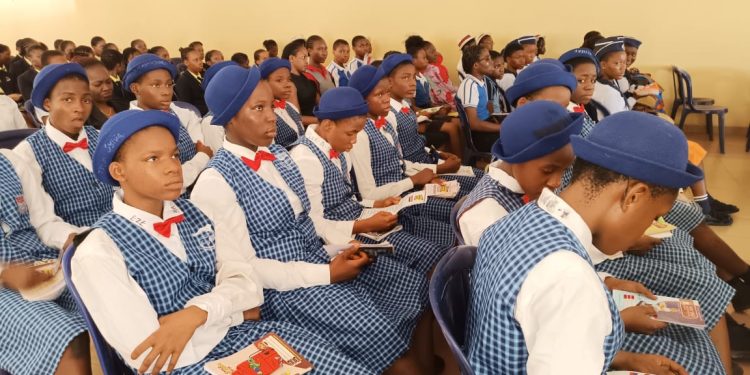A Public Health Physician, Dr Nkiru Ezeama says that about 44 per cent of women and girls in Nigeria are experiencing menstrual poverty as they can not afford N500 sanitary pads.
Ezeama made the ascertion at a symposium for schools girls organised by Zobam Charity Foundation, a non-governmental organisation, to mark Menstrual Hygiene Day, on Thursday in Awka.
Menstrual Hygiene Day is marks every May 28, to highlight the importance of menstrual hygiene and raise awareness of issues faced by women and girls who do not have access to sanitary products.
She said that menstrual poverty made many women and girls resort to unhygienic materials to absorb menstrual blood which could cause reproductive infections, urinary infection among others.
Ezeama described menstruation as the monthly expulsion of blood and cellular fragments from the uterus that starts at puberty.
According to her, menstruation is a normal biological process and part of a woman’s life and not something to be ashamed of or to be stigmatised.
“It is sad that many women and girls have their confidence eroded for the mere fact that they menstruate. They feel ashamed when they are in their periods which most times causes mental stress and could lead to anxiety and depression.
“Approximately 1.2 billion women and girls across the world do not have sufficient access to menstrual hygiene products due to poverty.
“Several are deprived of facilities where they can treat menstrual pain, change their pads and access to dispose pads in good facilities.
“According to statistics, one in 10 girls in Africa miss school because of their periods and about 44 per cent of women and girls in Nigerian are experiencing period poverty, they cannot afford N500 sanitary pads,” she said.
The Public Health physician said that poverty, gender inequality, cultural abuse and lack of access to basic services contributed to why menstrual hygiene needs were unmet.
Ezeama urged manufacturers of menstrual hygiene products to consider biodegradable friendly, hygienic and cheaper products that could be easily absorbed in the soil, as a way of addressing menstrual poverty in the country
Also speaking, Prof. Stella Okunna, Deputy Vice Chancellor, Paul’s University, Awka said that menstruation was not a taboo or abomination.
“In rural areas, many women grew up believing that menstruation is a taboo or something unclean and till date they still feel embarrassed when in their periods.
“Menstruation shows you are developing appropriately as a young woman and you should be happy because you are on the right part to adulthood,” she said.
In her remarks, Mrs Chizoba Okolieukwu, the Convener, said the symposium was to sensitise students on importance of good menstrual hygiene to restore the confidence of the girl-child.
“We need to sensitise our girls on personal hygiene, how to make reusable pad as an alternative way of procuring menstrual pad as most of them were from low income families and can not afford disposable pads.
“This is also an avenue to donate sanitary pads to girls in about 30 secondary schools in the state under the ‘One Girl One Pad Initiative’. We are calling on government, individuals, and foreign donors to key into this project,” she said

